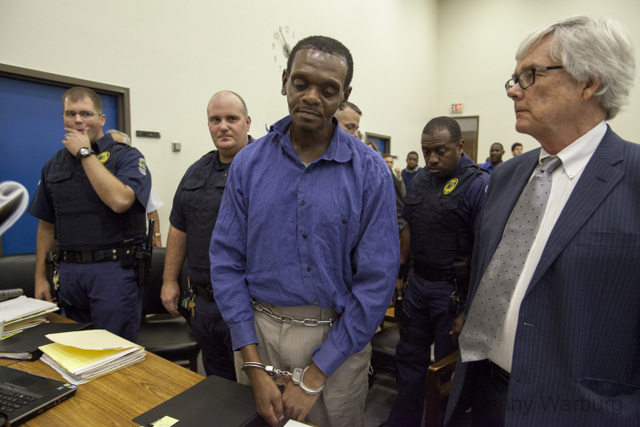Originally published in the News & Observer

By Kristin Collins
September 6, 2018
One elderly woman sat with us in her living room, wearing a pink nightgown. “I should have followed my conscience,” she said, her hands shaking. “I hope he can forgive me.” It’s unclear if she’s seeking forgiveness from the innocent man she sent to death row, or God himself.
She believed the Bible’s instruction: “Thou shalt not kill.” Yet, as a juror decades earlier, she voted for a death sentence for Henry McCollum, an intellectually disabled teenager who was accused of raping and murdering an 11-year-old girl in Robeson County.
The juror put the trial out of her mind until, four years ago this week, McCollum was exonerated. New DNA testing proved another man guilty, and McCollum blameless. After 30 years on death row, McCollum was free.
At the time, I was relatively new to my job at the Center for Death Penalty Litigation, whose lawyers represented McCollum. His story showed me just how high the stakes are in this world. North Carolina came close to executing an innocent man.
I am still learning from his case. This spring and summer, a co-worker and I criss-crossed Robeson and Cumberland counties, finding jurors who unwittingly sentenced an innocent man to death. The jurors served at McCollum’s original trial in 1983, and his retrial in 1991, held in Fayetteville. Both juries voted unanimously for death.
We hoped they could shed light on how our system got it so terribly wrong. But as I knocked on strangers’ doors, I worried they would be defensive or angry. Instead, they welcomed us into their homes.
Some seemed relieved to finally talk through the trauma of the trial, though none would let us use their names. Many were ashamed of their role, afraid of what their neighbors would think. Some feared God’s wrath, and wondered if they would go to hell for McCollum’s wrongful conviction. Some shed tears at the mention of his name and said the experience was too painful to revisit. They remembered McCollum at the defense table, silent and unresponsive, like a confused and broken child.
All were denied the information they needed to reach a fair verdict. They were shown gruesome crime photos and McCollum’s confession, written by the police. Even McCollum’s defense attorneys admitted his guilt, believing the jury would spare him if he accepted responsibility.
No one told the jury that another, almost identical crime was committed just a month after the girl’s murder — and that the culprit was not McCollum, but a man who lived by the field where her body was found. The jury didn’t know fingerprints were found at the scene, and that none of them were McCollum’s. They didn’t know the case against McCollum started with a rumor from a teenage girl, who later admitted she made it up.
One juror said his biggest regret is that he trusted prosecutors to tell the truth. If McCollum was on trial, he believed, he’d probably done it.
Like everyone we talked to, his most vivid memories were the photos. At the time, he had a daughter the same age as the victim. When the verdict was announced in the courtroom, he looked at her father. The juror had done what the prosecutor said was right, and he hoped it would ease another father’s pain.
“I’ve been trying to figure out, where did we go wrong?” he said. “I feel like we got duped by the system.”
I was in the courtroom for McCollum’s exoneration four years ago. I will never forget the sight of him standing in a cage – the court probably calls it a holding cell – during a break. He stared silently at the floor, powerless against a system that had chained and caged him for his entire adult life.
Now, there is another image that stays with me. A woman sitting in the dim light of her living room, hardly strong enough to rise from her chair, wondering what those 30 years were like for Henry McCollum. Wondering whether God has heard her pleas for forgiveness.

 Visit nccadp.org to learn
Visit nccadp.org to learn
